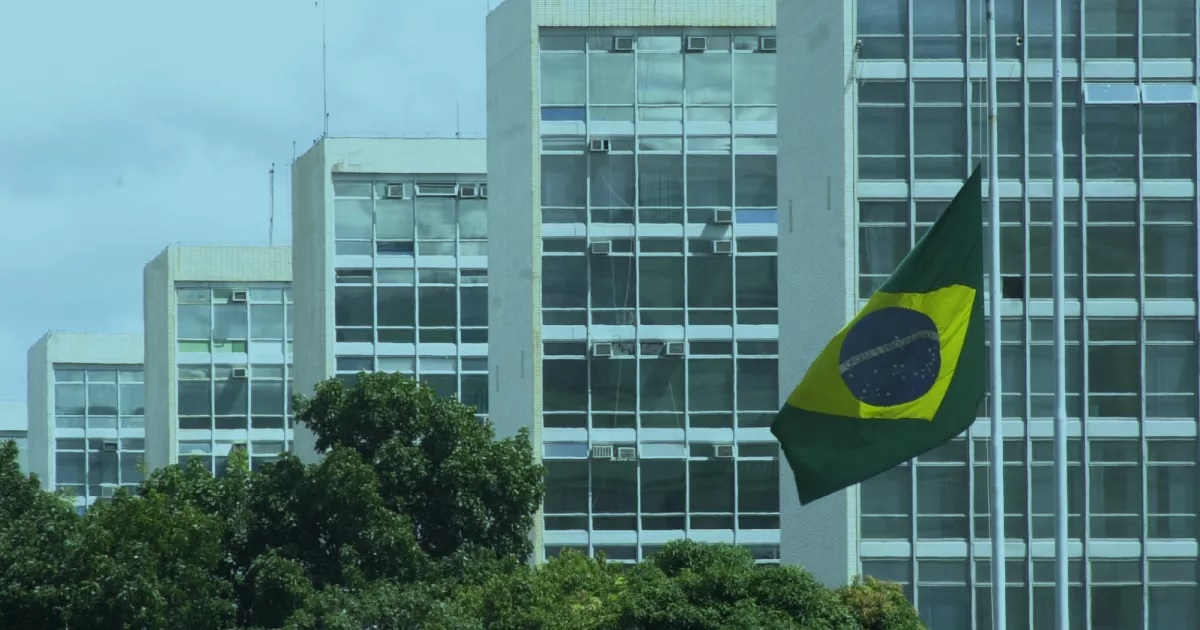RIO DE JANEIRO, BRAZIL – Brazil has one of the world’s highest expenses with public employees’ salaries, according to data gathered by the National Treasury for an interactive panel to be launched by the agency.
Out of a list of 74 countries, Brazil is ranked seventh in terms of spending: 12.9% of GDP goes to active federal, state and municipal employees. The data are from 2019.

Perks to circumvent the salary cap of R$39,200 (US$7,400) per month, salaries higher than in the private sector, and loopholes for accumulating salaries are factors pointed out by experts to explain why Brazil is near the top of the ranking. A history of salary raises above the inflation rate also adds to the picture.
The most recent privilege incorporated into the set of rules for civil servants was a Ministry of Economy ordinance that allows retired military and civil servants who continue to work in certain positions to be paid both salaries, despite exceeding the R$39,200 cap. The measure benefited President Jair Bolsonaro with an increase of R$2,300 per month and Vice President Hamilton Mourão with R$24,000 per month. Ministers will also benefit.
The measure has aroused criticism, especially at a time when Economy Minister Paulo Guedes’ team is trying to push forward in Congress its administrative reform bill, which changes the rules in government employment to reduce tenure, extinguish perks that inflate salaries, and lay the groundwork for a future revision of careers and salaries. The Proposed Amendment to the Constitution (PEC) needed for the reform is pending a vote in the Chamber’s Constitution and Justice Committee (CCJ) to proceed to the next stage, which is the merits review by the special committee.
“I wonder what they were thinking. It doesn’t make any sense, particularly at this time in the country,” criticizes deputy Tiago Mitraud (Novo-MG). He chairs the Mixed Parliamentary Front for Administrative Reform and submitted an information request to demand explanations from the government. “Not only is it immoral, but it is also highly incoherent,” he says. “In addition to having sent the administrative reform bill, the government also reduced the amount of aid to vulnerable people during the pandemic in 2021, on the grounds of spending control.”
Inside the spending
Treasury data shows that the proportion of expenses with civil servants in Brazil exceeds what is observed in other emerging nations, such as Russia, Chile, Peru and Colombia, and also in advanced countries, such as the United States, Germany and Spain. The data considers expenses not only with salaries, but also with the employer’s contribution to Social Security for these servants.
Economist José Luiz Rossi, professor of the Brasiliense Institute of Public Law, points out that spending on civil servants in Brazil is diverse, both from the administrative sphere and from the government branch point of view. In the first case, the federal government tends to pay higher salaries than states and municipalities.
He recalls a World Bank study that shows a high wage premium for federal employees, 96% in relation to what a worker with the same qualifications earns in the private sector. This premium stood at 36% in the states and virtually zero in municipalities.
From the governmental branches point of view, the Judiciary and the Prosecutor’s Office typically stand out from the other powers in terms of maneuvers to circumvent the salary cap. In late 2019, for example, a Estadão/Broadcast study showed that judges’ food stamps exceeded the minimum wage in 24 of Brazil’s 27 states.
“It’s a large country, which has a large demand,” says Rossi, justifying part of the spending on a significant cadre of civil servants. In Brazil, according to data from the Continuous National Household Sample Survey, 11.9 million declared themselves as public sector employees in the quarter to February 2021. On the other hand, Rossi accepts that there are distortions. “The issue is the incentive policy. There aren’t many steps in the career, a public servant will spend most of his or her career earning the maximum salary,” he says.
In September last year, the government submitted its reform to correct some of these distortions, after the bill had been put on hold for over a year due to strong political resistance. According to the IDP professor, the PEC is still modest because it did not include members of other branches, such as judges and prosecutors, and the government has not explicitly stated its plans to review the career and salary level structure.
“The original reform is very timid. It needs to address all branches and work more on the issue of career incentives. Employees spend too long earning the maximum salary,” says Rossi.
Mitraud also says that there is a need to review civil service remuneration, although the PEC currently only addresses the limitation of benefits, the so-called “perks,” which contribute to raising salaries above the cap.
Economist Bráulio Cerqueira, president of Unacon Sindical, an organization that represents financial auditors and is linked to the National Forum of State Careers, criticizes the data that places Brazil at the top of the ranking of spending on civil service. According to him, the accounting of spending on civil servants’ social security differs between countries.
“In the three federal levels, it is important to clarify this, civil servants salaries are frozen until the end of this year, in fact they are being reduced in real terms. In the federal government, the last salary increase for 80% of civil servants occurred in January 2017,” says Cerqueira. “There is no lack of control with the payroll today, what there is is the opposite, salary reduction and repeated decreases in spending on wages,” he adds.
A critic of the administrative reform proposal, the president of Unacon says that reducing the salaries of workers, in the private sector and in the public service, “only worsens the domestic market situation, hampering the recovery that will never happen.”
Source: R7

